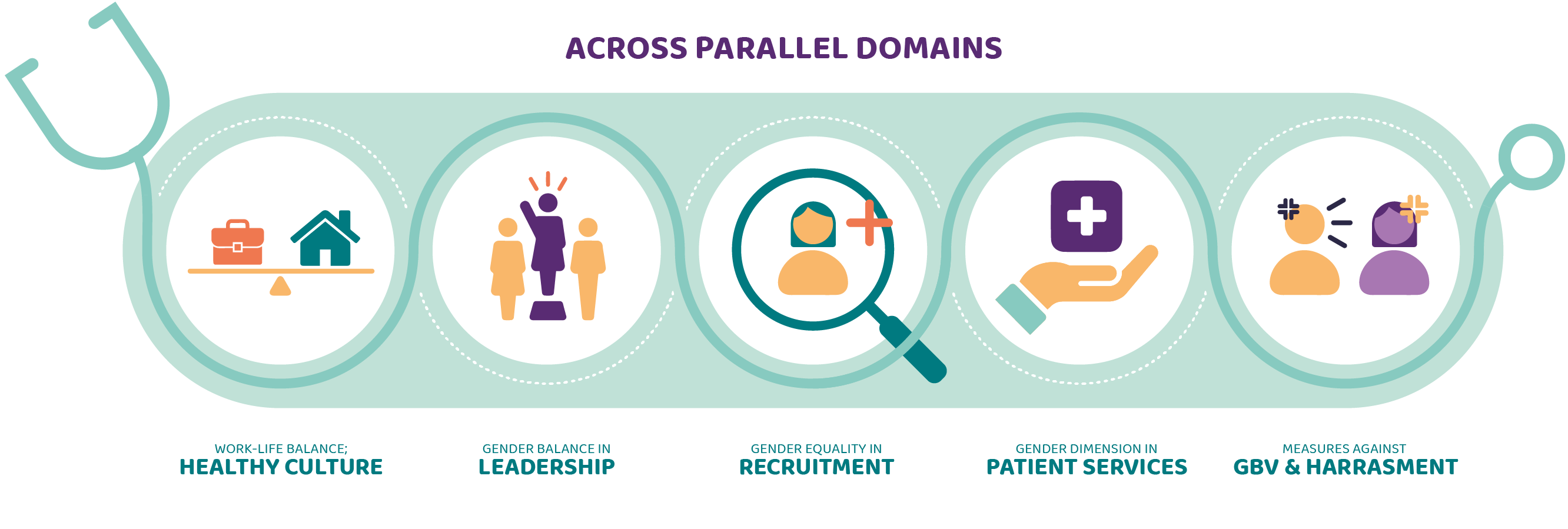Factsheet 3: Gender equality in the healthcare sector
Gender Equality Plans should be mandatory in Hospitals
SUMMARY: The pandemic has made visible the need for hospitals to offer the adapted working conditions and to deliver a service of the highest quality. Healthcare workers are leaving the sector faster than ever because of poor working conditions, lack of an adequate work-life balance, and work-related safety and health risks, which were exacerbated during the pandemic. Gender Equality Plans (GEPs) are a proven method to initiate a process of sustainable institutional change to the benefit of the quality of care, that is linked to the motivation and well-being of the people working in hospitals.
RESISTIRE’s RECOMMENDATIONS
Make the development of a “Gender Equality Plan” (GEP) mandatory for all hospitals.
Impacts pursued with this recommendation:
• Improved equality and diversity in the workplace
• Encourage institutional change
• Address and eliminate harassment issues
• Raise standards for professional practices in the EU
Promote the development of holistic GEPs, addressing all the different domains where discriminations take place
A holistic approach, that addresses in parallel different domains where discrimination takes place:
1. Work-life balance and organisational culture.
2. Gender balance in leadership and decision-making. Even if the sector is highly
feminised, decision-making bodies are too often male dominated and
embedded in a paternalistic culture.
3. Gender equality in recruitment and career progression.
4. Integration of the gender dimension into healthcare service delivery.
5. Measures against gender-based violence, including sexual harassment.
Integrate the actions from the plan in hospital processes, leading to sustainable institutional change
An institutional approach that embeds the changes into the bodies and processes of the organisation:
1. Public commitment
2. Dedicated resources
3. Data collection and monitoring
4. Capacity-building actions

